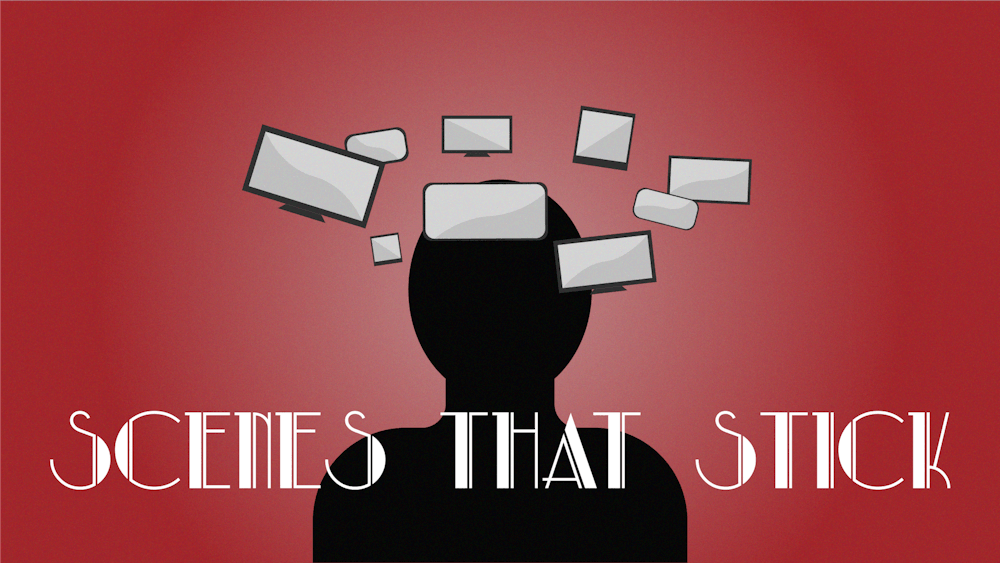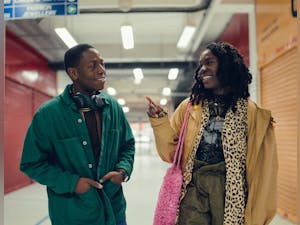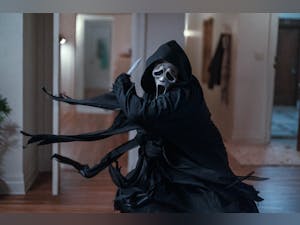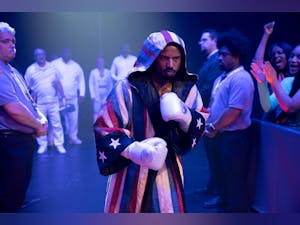From: Silver Screen
Scenes that stick: why ‘Love Actually’ melts your heart

Everyone has a favorite movie genre. It could be horror, action, romance, drama or countless other classic categories movies fall into, but it’s simple: everyone has one.
Normally, I love extremely poorly shot shark movies and movies that seem like they have a $100 budget — they’re great to make fun of. Ultimately though, one of my favorite categories is rom-coms; the cheesier, the better.
And hey, it’s constantly a fun time seeing Meg Ryan falling in love, a shirtless Matthew McConaughey, Tom Hanks struggling to find love, Julia Roberts' forbidden love, Kate Hudson giving a tear-jerking performance or Jennifer Garner’s sweet smile as they go through a quirky love story that emerges from a completely random event. Next comes the happy montage, followed by a fight and then a classic romantic run in the rain to prove their love. It always seems to work out in the end, despite the obvious differences the characters have.
But of all the rom-coms out there, from “When Harry Met Sally” to “How to Lose a Guy in 10 Days,” my favorite rom-com is none other than “Love Actually.”
In short, “Love Actually” is full of incredible — mostly British — actors who put on astonishing performances in different, little lives. Instead of focusing on one love story in particular, “Love Actually” follows different plots that eventually tie together in the end.
“Love Actually” shows the different bumps and bruises that love brings, along with the wonders of love, through different lifestyles. By doing so, this film takes the audience's emotions on a rollercoaster. Whether it’s cursing at the screen as we watch Alan Rickman betray his loving wife (Emma Thompson), laughing at Kris Marshall’s cringey and desperate attempts at love, or wiping away tears when a newly widowed Liam Neeson struggles to be a good dad to his stepson, “Love Actually” easily conveys an array of emotions.
Of the nine different love stories in the film, I am most interested in the full circle that the opening and closing scene create.
At the very beginning, we see clips of real people in airports hugging each other to a voice-over of Hugh Grant talking about the different kinds of love: “Whenever I get gloomy with the state of the world, I think about the arrivals gate at Heathrow Airport. General opinion is starting to make out that we live in a world of hatred and greed, but I don’t see that. It seems to me that love is everywhere. Often it’s not particularly dignified or newsworthy, but it’s always there. Fathers and sons, mothers and daughters, husbands and wives, boyfriends, girlfriends, old friends.”
It’s a heartwarming scene because we see real people reuniting with their loved ones and their genuine reactions — no actors involved. It makes you believe what Grant is saying and that his words are not flimsy writing, but that there’s truth to them.
Grant then goes on to discuss tragedy and its connection to love: “When the planes hit the twin towers, as far as I know, none of the phone calls from the people on board were messages of hate or revenge, they were all messages of love. If you look for it, I’ve got a sneaky feeling you’ll find that love actually is all around.”
We’re suddenly drawn toward a new feeling: sadness. But this sadness is turned into hope as the quote turns a horrible, historical day into a hopeful thought.
After the beginning airport scene, the film transitions into the different plotlines. Throughout the runtime, however, the audience is left wondering if all these storylines will connect at all. It isn’t until the final scene, when the film flashes forward one month later, where all the stories finally come together: the arrivals gate at Heathrow Airport.
Each couple gets their own ending, which all tie together through family, relationships and pure chance. After the stories wrap up as people get off the plane and return to loved ones, the movie once again cuts to videos of real people hugging and kissing each other in Heathrow Airport. This time, however, there is no voice-over, instead “God Only Knows” by the Beach Boys overlays the multiple clips as they form their way into a large heart. It’s cheesy, but what else is expected from a Christmas rom-com? These little snippets of love provide a powerful end to the film as we get to see the staged love turn into something real.
This full-circle ending not only connects all the characters together and puts a smile on your face; it also shows that, as Grant said in the beginning, “love actually is all around.”
In case you need a little joy, the beginning and end scenes have been edited together on YouTube.
“Love Actually” is available to stream on Netflix now.




